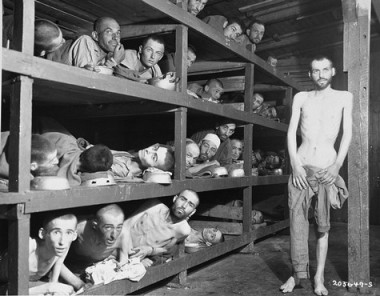Austrian psychiatrist Victor Frankl endured five months of slave labor at Auschwitz towards the end of the war. In his powerful classic about that experience, Man’s Search for Meaning, he stresses how a prisoner’s sense of purpose and meaning helped raise the long odds against survival. “The prisoner who had lost faith in the future—his future—was doomed. With his loss of belief in the future, he also lost his spiritual hold … and became subject to mental and physical decay.” One prisoner gained endurance by focusing on the child waiting for him in another country, another on the book he hoped to complete.

Such purposes gave meaning to the lives of the weakened prisoners. As for the meaning of life in general, Frankl dismisses the tendency to expect a single answer to the big question.
Questions about the meaning of life can never be answered by sweeping statements. ‘Life’ does not mean something vague, but something very real and concrete, just as life’s tasks are also very real and concrete. They form man’s destiny, which is different and unique for each individual.
Sometimes a person must take action in some form, sometimes he must contemplate, sometimes he must care for another person, sometimes—as at Auschwitz—he must endure suffering.
Frankl’s emphasis on life’s concrete tasks as the meaning of life startled me. I looked again at my own “sweeping statement” on this blog–that meaning is anchored in the drive of living things to survive, thrive and reproduce and that humans are always working out those purposes in one way or another. Had I fallen into the trap of trying to capture the meaning of life in a big, broad statement? What did my words—”thrive” especially—really mean?
But I’ve come to think, wishfully perhaps, that Frankl’s view and my own are not so incompatible. Frankl’s concrete tasks are similar to the variety of ways I see people carrying out their biologically rooted mission—through children, through art, through social service, through jobs, through self-preservation. These are the variety of tasks, of destinies, that make up individual lives.
We like to try to capture life in a few words. Frankl sees life as too confrontational for that. It will offer us purpose or meaning only if we take on the unexpected work it sends us.
